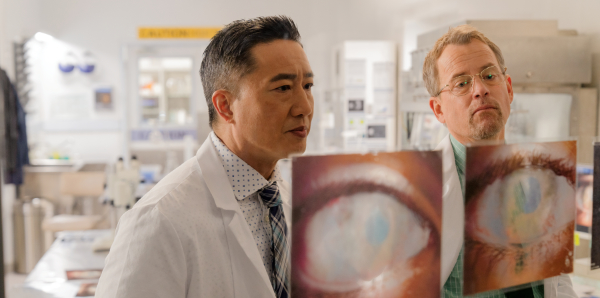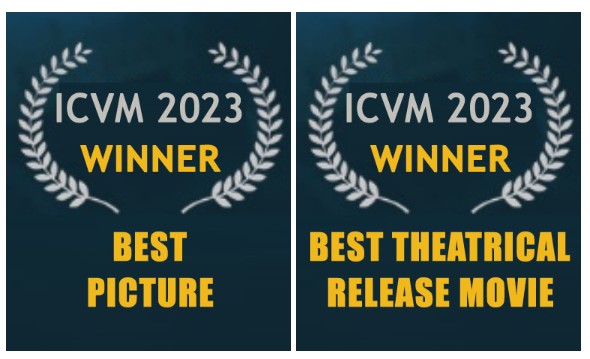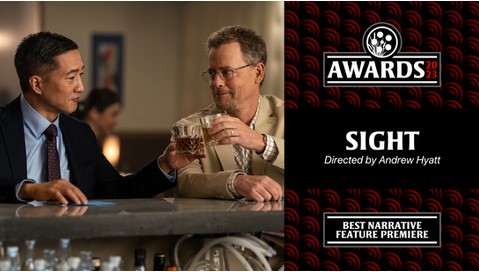By Rick Bentley, May 23, 2024, KGET.com

There is no escaping the irony that in “Sight,” one of America’s most talented eye doctors, Ming Wang (Terry Chen), must get past his own emotional blindness to really be able to see the world. It is a journey that starts in his homeland of Communist China and ends with an operation on a small girl from India. The eye-opening trek is made all that more powerful by the fact the film is based on a true story.
Director Andrew Hyatt – whose past works include “Paul, Apostle of Christ” and “Full of Grace” – tells the tale in two parts. Half of the story unfolds in the past showing how young Wang (Ben Wang) grew up fighting a perilous battle to follow in his father’s footsteps as a doctor. His plans appear to reach a final roadblock with the Cultural Revolution in the country that shuts down all schools.
Despite a dark outlook on his future, the loss of a dear friend and constant threats of military service, Wang continues to study. The fact he is a prodigy helps him recover when the schools reopen and he eventually moves to America where he becomes a pioneering eye surgeon.
The other half of the film focuses on two present day cases. Wang is approached to perform surgery on a young girl whose mother blinded her with acid. In India, legitimate blind beggars make more money.
As has become the norm, Wang shares his efforts with the media. This has been a positive with each success but when the surgery doesn’t go as planned, Wang must re-evaluate the work he is doing and take a hard look at the person he has become. His confidence has been destroyed and it is only when he gets an emotional boost from his past that Wang is willing to tackle another surgery.
That decision leads him to create a way for patients to heal without scarring in their eyes that revolutionizes the surgical world. That discovery also allows Wang to deal with the scarring that has been on his heart since he was a youth.
Hyatt’s decision to bounce between the past and present was a good decision because one reveals how a person can have nothing and see the world with an optimistic eye. The other shows how reaching a peak of success doesn’t automatically translate into becoming a visionary.
The film works because of Chen’s performance. He comfortably handles the moments when Wang is wrapped in the confidence of his own success. He is equally at ease when dealing with the emotional crash that comes when Wang realizes he has been driven more by his press clippings than the spiritual and emotional elements he learned in his youth.
Wang’s discovery that science can only carry him so far and that there comes a time when faith takes over gives “Sight” a very solid religious and philosophical foundation. It has all the elements of a faith-based film but never reaches the point of becoming preachy. Just as with Wang, the audience is shown the light and it is up to each individual to see what is there or remain blind.
Greg Kinnear is touted as the star of the film, but he has more of a supporting role as a fellow doctor working with Wang. Kinnear’s job is to keep the film from slipping too far into melodrama and never getting off the path of reality. He is a good acting balance for Chen.
The movie industry tends to lean heavily toward films with big action sequences. “Sight” is a superb example of how refreshing it can be to see a production where the only collisions are cultural clashes and the explosions are the result of explosive new ideas.
There is nothing wrong with seeing a movie that’s sole purpose is to make the moviegoer feel uplifted when they leave the theater. Those kinds of productions are a rarity these days and that is why it is important to set your sights on seeing “Sight.”
“Sight” is now showing in local theaters.
Movie review
Sight
Grade: B
Cast: Terry Chen, Greg Kinnear, Ben Wang, Fionnula Flanagan, Wai Ching Ho.
Director: Andrew Hyatt
Rated: PG-13 for violence, thematic elements
Running time: 100 minutes.





